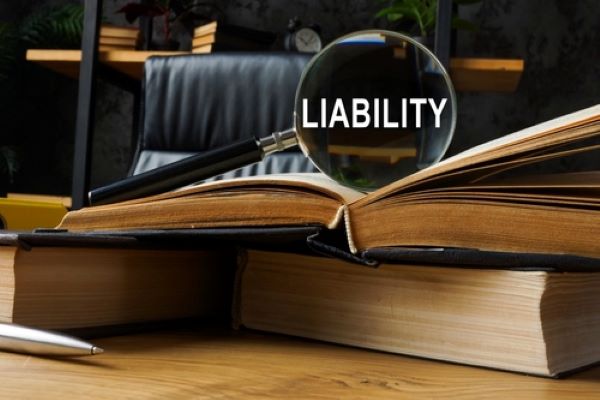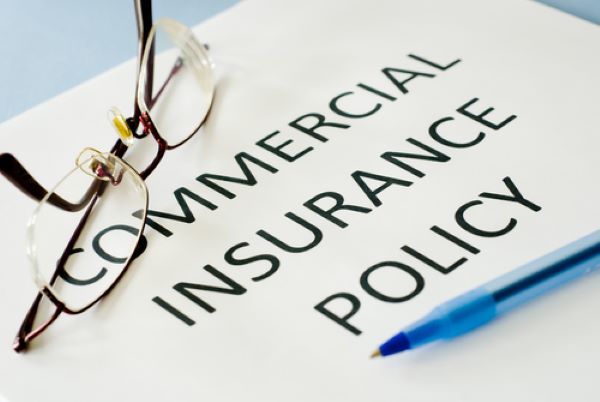 |
| By | April 1, 2023 |
Operating a business can be stressful—as a business owner, you have a lot to be responsible for, whether it be the daily business operations or protecting your business from financial loss. One way you can safeguard your business is by purchasing commercial auto insurance, which is a crucial form of insurance for business owners who use vehicles as part of their daily operations

While personal auto insurance may be sufficient for some, it may not always provide the necessary coverage to protect your business from financial loss in the event of an accident or damage while conducting business.
What Is Commercial Auto Insurance?
Commercial auto insurance is a specialized form of insurance that provides physical damage and liability coverage, surpassing the limits of personal auto insurance policies. Its purpose is to protect commercial vehicles, including cars, trucks, and vans, owned or leased by a company, as well as those used by employees during work-related activities.
This type of insurance policy is designed to provide coverage for a wide range of risks, such as liability for property damage or bodily injury caused by an accident, collision damage to the insured vehicle, and compensation for theft, fire, or other forms of damage.
Businesses that operate with a comprehensive auto insurance policy can be confident knowing that they are adequately protected against unforeseen incidents or accidents.
What Does Commercial Auto Insurance Cover?
Commercial vehicle insurance is similar to personal auto insurance in that both offer liability, collision, comprehensive, medical payments (or personal injury protection), and uninsured motorist coverage. However, businesses should be aware of the important differences between commercial auto insurance policies and personal auto policies.
These differences can include eligibility requirements, definitions, types of coverage available, exclusions, and limits on coverage. In order to ensure they have the right coverage to safeguard their vehicles and operations, businesses should maintain close communication with their insurance providers. In order to make wise choices and prevent potential financial losses, it is important to understand the specifics of commercial auto insurance policies.
- Collision coverage covers damages to your business vehicle caused by a collision with another vehicle.
- Comprehensive physical damage coverage covers damage to insured vehicles from non-collision events such as theft or weather.
- Property damage liability coverage covers damages your business vehicle causes to another person’s property in an accident you’re at fault for.
- Bodily injury liability coverage covers medical expenses and lost wages if your business vehicle causes an accident that injures others.
- Uninsured motorist coverage protects your business from financial losses caused by accidents with uninsured or hit-and-run drivers. In some cases, underinsured motorist coverage can be used when the at-fault driver has insufficient insurance.
- Medical payments, no-fault or personal injury coverage covers medical expenses and lost wages for you and your passengers regardless of who is at fault.
- Combined single limit (CSL) coverage sets a single limit for both bodily injury and property damage liability, rather than separate limits for each.
Why Do I Need to Purchase Commercial Auto Insurance?
If you own, lease, hire or use vehicles for your business, you should have, at a minimum, liability coverage. In most states, it’s mandatory to have this coverage for owned autos. Additionally, federal law requires businesses that transport goods or people across state lines to have liability coverage. For larger commercial vehicles, a commercial truck insurance policy may be necessary.
Commercial auto insurance is a necessity for vehicles used for business purposes and those with commercial license plates or registration. It’s also important to carry commercial auto coverage if you or your employees use vehicles for work-related tasks, such as driving clients to the airport, going on sales calls, taking packages to a shipper, or picking up office supplies.
Does My State Require Commercial Auto Insurance?
Since state governments are in charge of regulating commercial auto insurance, your business’s specific needs will depend on where it is located. If you don’t have the correct commercial auto insurance, you risk paying expensive fines and opening your company up to legal action.
All states, with the exception of Virginia and New Hampshire, require commercial auto insurance for business vehicles and also require you to compensate the other driver in the case of an accident in which you or your employee are at fault.
Before purchasing commercial auto insurance, ensure your policy meets the minimum coverage your state requires. You can consult a licensed insurance agent to help you understand your business requirements. To find out the type of coverage your business requires, contact a licensed insurance agent from the insurance pros at Cell Brokerage.
How Much Does Commercial Auto Insurance Cost?
Determining the cost of an insurance policy is a complex process that is influenced by various factors. These factors can include the size of the business, the number and types of vehicles being insured, the number of employees who will be driving the insured vehicles, the costs associated with any vehicles that have been rented, the level of risk associated with the business and its driving activities, and the amount of coverage that is required.
Work with an agent to calculate your insurance costs to find affordable coverage that meets the needs of your business.
Choosing a Commercial Vehicle Insurance Policy
Still unsure if you need commercial auto insurance? Call the insurance pros at Cell Brokerage. Depending on how you plan to use your vehicles for business purposes and who will be operating them, our agents can assist you in determining the type of coverage you require.
We collaborate with a range of insurance providers, which enables us to offer customized options that match your specific requirements and financial constraints. By leveraging these partnerships, we can identify the most appropriate commercial business insurance for you, thereby saving you the time and effort involved in researching and comparing different plans.
Contact us to get your quote today.









